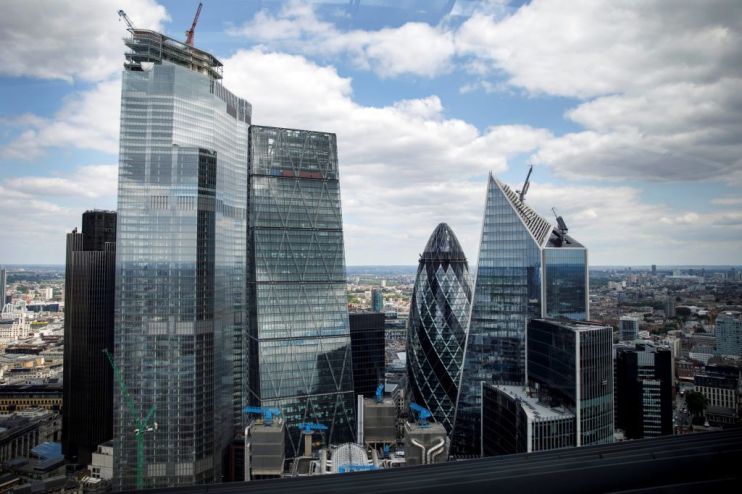Listed law firm DWF sees revenue jump after coronavirus chaos

Listed law firm DWF said that strong trading in the first three months of the new financial year had helped offset the impact of the coronavirus.
In a first quarter trading update released this morning, the firm said both revenue and earnings were “materially ahead” of where they were last year.
DWF also released its full year results for the prior financial year, which it had delayed due to the pandemic.
Shares in the firm rose nearly four per cent over the course of trading.
The figures
For the first quarter, revenue was up 20.3 per cent year on year, from £70.1m to £84.3m.
That’s almost double the increase recorded across last year as a whole, when revenue increased 10.9 per cent £268.1m to £297.2m.
However, despite the increase, DWF said that revenue had come in lower than it had expected.
Having stalled at the end of last year, profit before tax also jumped, rising more than 200 per cent in the first three months to hit £7.4m.
By contrast, at the year end it had slipped back 32.4 per cent, from £20.3m to £13.8m.
Likewise, while DWF’s debt stood at £64.9m at the end of April, by the end of the first quarter it had been reduced to £55.2m.
That’s still around £20m higher than at the end of the 2019 financial year, where net debt was £35.3m.
For the year as a whole, DWF has proposed final dividend per share of 0.75p taking the total proposed dividend to 3.25p, despite the coronavirus impact.
The board said that it was committed to its stated dividend policy of a pay-out ratio of up to 70 per cent of adjusted profit after tax.
Why it’s interesting
It was very much a tale of two quarters for DWF, with the end of the last financial year seeing former chief executive Andrew Leaitherland ousted as the pandemic squeezed the firm’s activity.
Before the Open newsletter: Start your day with the City View podcast and key market data
Chris Stefani, the firm’s finance chief, told City A.M. that the pandemic came at “the worst possible time” for the firm.
“Covid-19 was a crater”, he said. “We always see a large proportion of our profit recognised in the last quarter of our financial year so Covid hit at the worst moment, which dented what what would have otherwise been a much stronger performance”.
As a result of the pandemic, DWF’s new chief executive Sir Nigel Knowles said that the firm had “temporarily” paused its international expansion to consolidate its existing business.
“We are looking to make all the businesses we’ve already acquired work well with all the businesses we already had”, he said.
“So we are spending some time making them more effective, connecting them up and integrating them so we’ve got a really solid platform that works on a global basis.”
Knowles said that the combination of the pandemic and Leaitherland stepping down “pointed to the fact that we’ve got to get a lot more effective and efficient operationally and that’s what we’ve done”.
On the firm’s debt pile, which has been a cause for concern in the past, Stefani added that the acquisition of two business just prior to the beginning of the pandemic meant the increase was “somewhat artificial”.
DWF will attempt to drive it down over the next two years, he confirmed.
The firm did not offer any guidance for the year, but Stefani said: “We believe will deliver and enhanced profit this year”.
Jefferies analysts said they were “encouraged by DWF’s swift recovery
from April, and we see material upside if execution and macro continue to improve”.
What DWF said
In a statement, Knowles said: “The strength and resilience of the Group and our differentiated model has been evident in the first three months of the 2021 financial year.
“We have seen strong activity levels generating positive momentum across the business resulting in revenue and Ebitda being materially ahead of the prior year.
“Trading through the majority of FY20 was strong and the Group made significant investments to support its growth objectives. The sudden and far reaching impact of Covid-19 had a material effect on the final quarter with a resulting impact on profitability.